For the INFJ with Closed-Minded Relatives
With the holidays arriving, many of us are planning trips to see family members and friends from our childhoods. While this can be an uplifting and enjoyable experience for some, it can also dredge up old childhood wounds and insecurities. Many INFJs I’ve spoken to recently have been struggling with apprehension around family dinners, holiday parties, and tense discussions. I’ve been there before and I can relate.
How can we as INFJs deal with family members who seem to be stuck in their ways and refuse to budge on their opinions? How can we maintain inner strength and calm when people put down what we believe or make quick assumptions? How can we be loving to our loved ones, while still maintaining healthy boundaries?
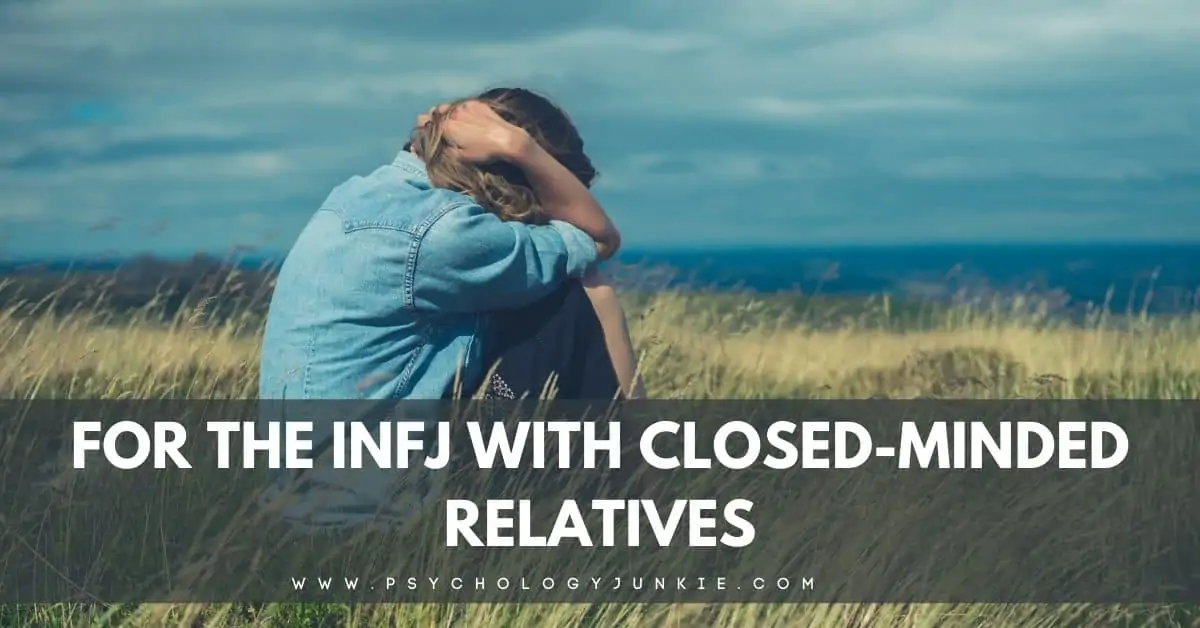
Not sure what your personality type is? Take our new personality questionnaire here. Or you can take the official MBTI® here.
Here are a few quick things to keep in mind:
- Closed-mindedness is usually a result of fear and deep-seated anxiety. What’s hidden behind the judgmental outer persona is usually a more sensitive, fragile core.
- It’s not your responsibility to change anyone. Don’t put your energy into trying to “fix” your family members or change their opinions. This is especially true of religious or political opinions, which are nearly impossible for an outsider change.
- You are not flawed for having a big imagination and an ability to see dozens of different perspectives at a time. You have a lot to offer the world – please don’t doubt yourself because someone else is close-minded.
- You only have control over two things: Your interpretations and your reactions.
- Try to ask yourself, “What is the kindest assumption I can make about this person?”
- Being compassionate with yourself will allow you to more fully have compassion for others.
- Being curious makes it nearly impossible to be judgmental
- Taking a moment to go outside and breathe deeply can be incredibly calming
- What other people think of you is not your responsibility.
- You don’t have to engage with or answer questions that are belittling, condescending, or narrow-minded.
- Your reactions to people who are narrow-minded or judgmental set an example for your children (if you’re a parent) and can be a powerful lesson about inner strength, calm, and maturity
- Being open-hearted can help you to open other people’s hearts
- It’s okay, even good, to say “No” to social events (even family ones) if you have been emotionally or physically abused or gaslighted.
- Saying, “you may be right,” “I’ll think about that,” or “you’ve brought up some points for me to consider” are all respectful ways to disengage from an argument (but only say these things if you mean them)
Why INFJs Struggle with Closed-Mindedness in Others:
As an INFJ, you’re very sensitive to other people and their points of view. In fact, Personality Hacker calls your natural way of information-gathering “Perspectives” because of how you are able to shift perspectives and understand emotions.
“The INFJ type seeks to understand each individual as they are in relation to others and the world. From childhood, there is a deep interest in why people experience things as they do, what needs are going unmet, how that impacts behavior, and what a person’s subtle tells indicate.” – Joel Mark Witt and Antonia Dodge, Personality Hacker
Because this is your natural way of processing information, you immediately cringe when people form quick judgments or fail to put themselves in other people’s shoes. As long as you’re at an average to mature level of development, you have a natural gift for empathy, and are hurt when other people are lacking in it. You want to tell everyone to slow down and imagine things from another person’s point of view, and really let it sink in.
What contexts led someone to be where they are?
What life situations impacted them?
What other perspectives could add depth and nuance to your understanding of a situation, belief, or feeling?
Your Feeling Side
Along with your gift for perspectives and depth of insight, you have a natural sense of the emotional temperature of the room. You can read people’s feelings and adjust for their well-being or to improve the overall mood.
This may mean that you adjust too readily when you really should stand your ground. For example, if someone is being condescending or dismissive of you, you may feel tempted to laugh it off or simply absorb it and take it. It’s important to know when to ignore an offense and when to stick up for yourself, and sometimes making that distinction can be challenging.
It’s okay to say, “I don’t deserve to be spoken to like that.”
It’s okay to walk away for a breather.
It’s okay to ask, “Do you think the way you’re speaking to me is respectful and thoughtful?”
And sometimes it’s okay to cut ties if you are dealing with an emotionally or otherwise abusive family or friend group.
As a thank you for subscribing to my newsletter I will send you this free eBook PACKED with self-care tips, creativity hacks, and more! You'll also get a 3-day email course for understanding your personality type better!
Get Your Free INFJ eBook
Dysfunctional Family Roles:
My friend and fellow typology expert Heidi Priebe has recently done a series of YouTube videos about dysfunctional family roles. If you’re an INFJ who grew up in a dysfunctional family you might find her series enlightening and informative. You may want to take a moment to view these during this holiday season, just to get direction on how to navigate and heal negative feelings within yourself. I’m embedding her introduction to these roles below, which is an excellent place to start:
Get Support
If you’re bracing yourself for a stressful family gathering, having support is crucial. This could come in many different forms:
- You could seek professional counseling or therapy
- You could talk to a trusted friend or family member about your fears and frustrations
- You could join an online community that supports you. I’ve created a Facebook group specifically for Intuitive-Feeling (NF) personality types if you’d like to be a part of it!
- Take time to recharge before and after these family events. Get out in nature, rest, read a book, or listen to some music that encourages you.
Some Other Articles That Might Be Helpful:
Honoring Your Inner Child as an INFJ
What Are Your Thoughts?
Were you encouraged by this article? Do you have any tips for fellow INFJs? Let us know in the comments!
Find out more about your personality type in our eBooks, Discovering You: Unlocking the Power of Personality Type, The INFJ – Understanding the Mystic, The INTJ – Understanding the Strategist, and The INFP – Understanding the Dreamer. You can also connect with me via Facebook, Instagram, or Twitter!

Subscribe to Our Newsletter

Want to discover more about personality type? Get the inside scoop with Susan Storm on all things typological, along with special subscriber freebies, and discounts on new eBooks and courses! Join our newsletter today!


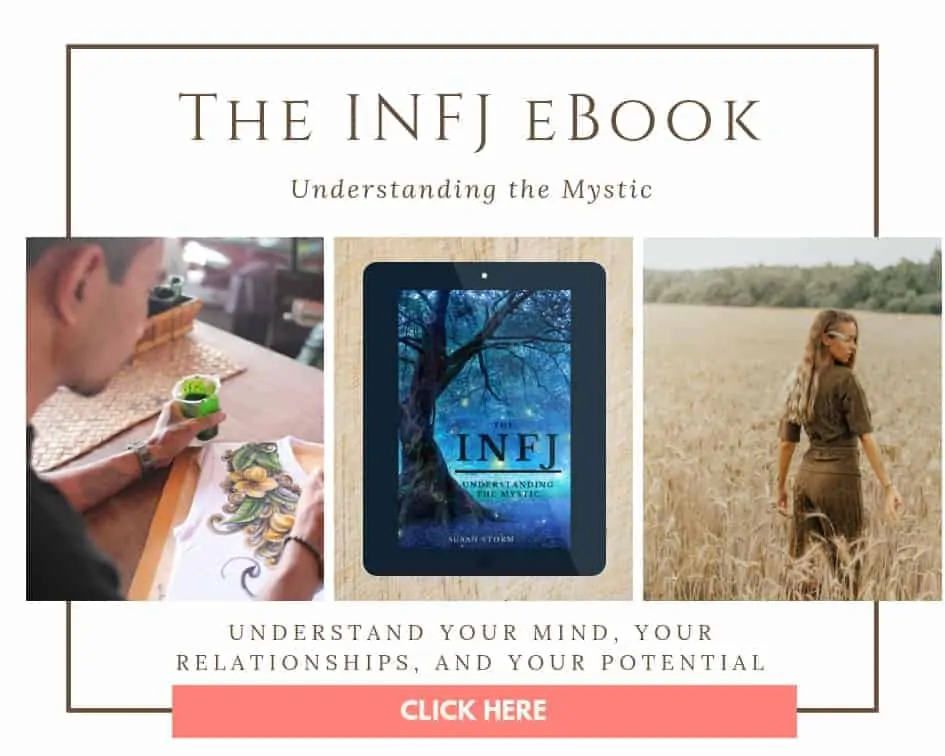

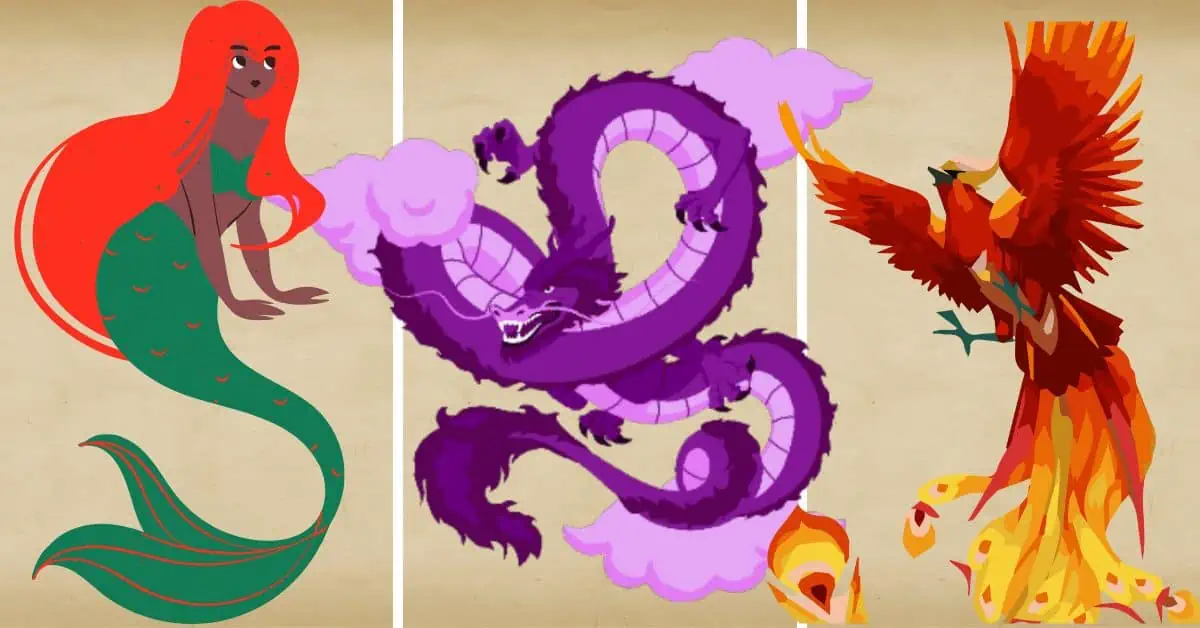





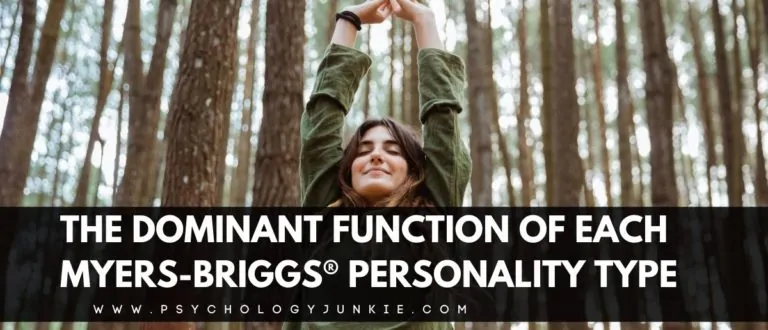
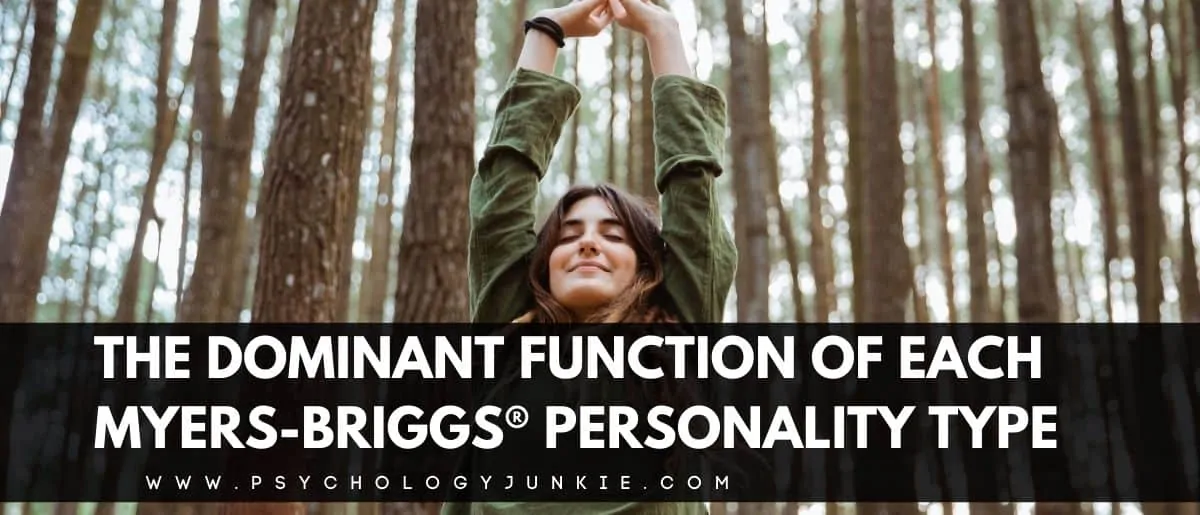


Thank truly Susan; helpful and supportive as always. A breath of fresh air outside really does make a difference
Thank you Susan; a breath of outside air really makes a difference